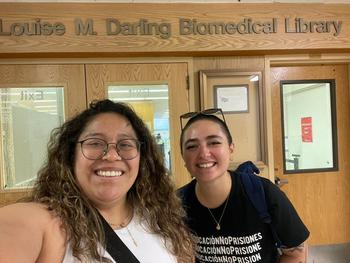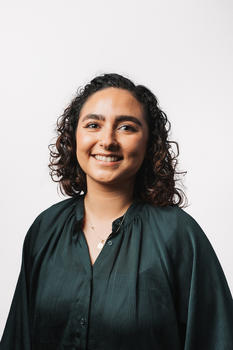In This Story

This summer Sofia Nicholas and Marylyn Ann Paulino Yalta attended the Minority Training Program in Cancer Control Research (MTPCCR) at the University of California, Los Angeles (UCLA) Summer Institute (SI). It was Mason instructors who pushed their students to go above and beyond in their pursuit of public health innovation. Nicholas and Yalta and are current Master of Public Health students concentrating in epidemiology.
“Two of my greatest influences when exploring the MTPCCR Fellowship were Dr. Jenna Krall and Dr. Jaffer Zaidi. Dr. Krall's GCH 804 course pushed me to be excited to explore data analytics and understand the ’why’ underneath each dataset. In Dr. Zaidi's GCH 805 course, one of our term projects surrounded a dataset focused on precancerous conditions. It was the first time I could merge my curiosity for data analysis and my academic goal of developing cancer prevention measures,” said Nicholas, a MPH in epidemiology student also working to earn a graduate certificate in Health Informatics and Data Analytics. Nicholas is expected to graduate spring 2025.
MTPCCR aims to increase diversity in the field of cancer control research by providing minority students with exposure to conducting cancer epidemiology surveillance, specialized research methods, policy development, and health service delivery.
Nicholas attained many foundational skills during their GCH courses that prepared them for the fellowship.

“My professors provided me with the foundation in R coding to pursue work in data analytics,” said Nicholas. “Being fluent in coding is an increasingly imperative skill to have and I hope to use my skill to make statistics about cancer easier to understand.”
After completing their MPH, Nicholas intends to pursue a PhD in epidemiology, and more specifically in cancer surveillance and prevention.
